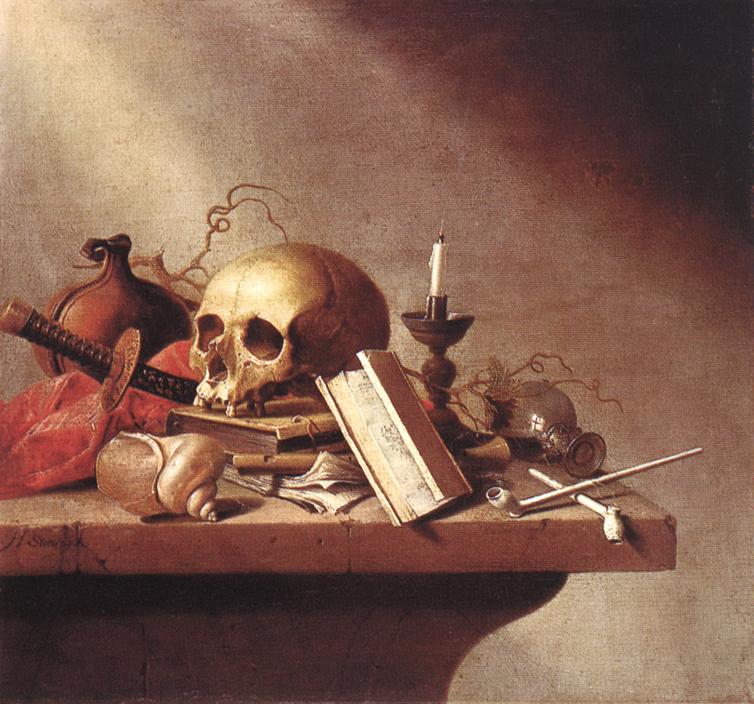We Are All Cooked
February 10, 2016
ASH WEDNESDAY, the first day of Lent, is a day devoted to the certain knowledge that we will die. Someday, somehow, we are all going to be gone. Someday no one on earth will think of us or remember us. It helps to know. “Dear soul, from what peril and fear you could free yourself, if you lived in holy fear, mindful of your death,” Thomas à Kempis said.
From Fish Eaters:
In Genesis 3:19 we hear God tell us “for dust thou art, and into dust thou shalt return,” but nowadays, when someone dies, they are rushed from deathbed to funeral home to be embalmed and to be worked over by a make-up artist so that that “dusty reality” is hidden from us. Their deaths are spoken of as almost an embarrassment; “he passed,” they say, or “he is no longer with us.” These comforting but sterile luxuries weren’t an option in the past when plagues felled so many people that there weren’t enough survivors to bury them, when bodies had to be stored all winter until the ground was soft enough to dig, when most of the children a woman bore died before they were able to grow up. In our culture, with our medicines and “funeral sciences,” we are afraid to look at death, and we are a poorer people because of it. No matter how long science can prolong life, no matter how much embalming fluid is pumped into a corpse, nature will have her way. This is Truth. And when nature has her way, we can either rest in the knowledge that the ultimate Victor is Christ, Our Lord, Who walked out of His tomb 2,000 years ago and offers resurrection to us, or we can believe that decay is all that is left. This is the meaning of Ash Wednesday.
Ash Wednesday is the day for being reminded of and contemplating our mortality, of which Ecclesiasticus 1 reminds us:
What profit hath a man of all his labour which he taketh under the sun? One generation passeth away, and another generation cometh…
When a new Pope processes to St. Peter’s Basilica to offer his first Mass as Pope, the procession stops three times and, at each stop, a piece of flax mounted on a reed is burned. As the flames die, the Pope hears the words, “Pater sancte, sic transit gloria mundi” (“Holy Father, thus passes the glory of the world”), to remind him not only that he is a mere man, but as a man, a mere mortal whose end is like the end of all other men. The things of this world are transient, and Christians must always keep one eye on the world to come.
Recalling this Truth is one of the principles behind the use of ashes on the forehead today: to remind us that we are mortal, subject to the rot and decay our Western culture now desperately tries to euphemize away, and that we are radically dependent on — solely dependent on — Jesus Christ to overcome this fate.
More here.

